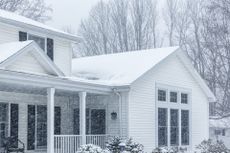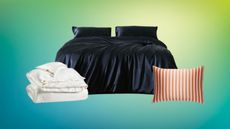Should you sleep facing north? This is why your bad night's sleep could be down to your bed pointing the wrong way
Struggling to sleep? We asked experts whether switching up the layout of your bedroom could be the solution
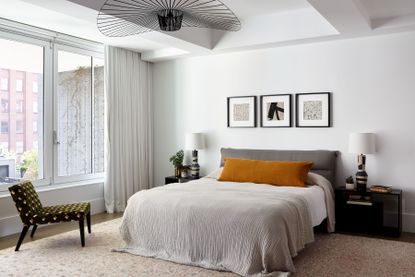

We all want a good night's rest, and many of us make a conscious effort to boost those chances. Be it avoiding screen time before bed, painting your bedroom walls a calming hue, or investing in a supportive mattress, there's a whole host of changes you can make to your daily routine to help improve your sleep quality. But have you ever considered changing the direction you face in bed?
While it might sound far-fetched, many ancient traditions - such as Vastu Shastra - claim that lying with your feet facing north can help you to sleep better, and recent research supports that theory.
But, before you commit to changing the layout of your bedroom, we asked some sleep experts for their insight on whether there's any substantial proof to the claim.

Lilith is an expert at following news and trends across the world of interior design. She's committed to helping readers make the best choices in their homes through sharing practical tips and guides that promise a happier, healthier space. For this piece, she spoke with sleep experts to find out whether the direction that we face during the night could actually help with sleep quality.
Should you sleep with your feet facing north?
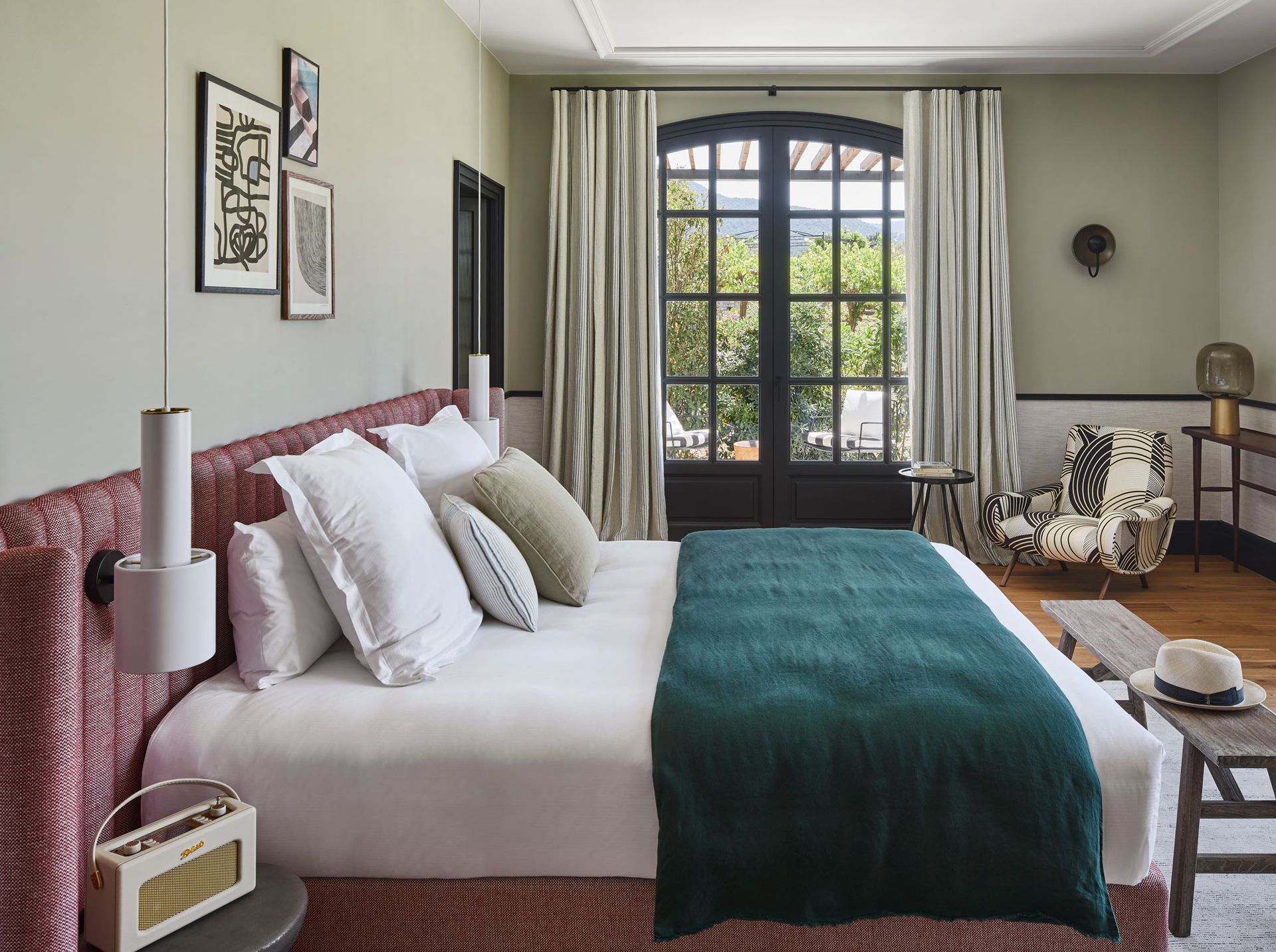
According to Vastu Shastra and other eastern medicine practices, sleeping with your feet pointing north and your head pointing south is the best position for a good night's sleep. Drawing upon Hindu mythology, the concept stems from the idea that living organisms are designed in harmony with the energy of the universe and so the human body has its own north and south poles just like the Earth.
'This means that some believe that the Earth's magnetic field could affect sleep quality,' says Tom Greenspan, co-founder and Sleep Science Coach at VS Mattress. 'They therefore recommend trying to align your head in the same direction as this magnetic field when you go to bed for improved sleep quality.'
While some studies have shown that sleeping in this south-to-north direction can lower blood pressure (thus improving sleep), there's not a lot of scientific evidence to back up the claim. As Tom explains: 'It is not necessary to sleep facing a specific direction, and there is no scientific evidence that sleeping facing north has any particular benefit.' According to Jeff Kahn, CEO and Co-Founder of Rise Science, if you struggle with poor sleep, the direction in which you sleep is unlikely to be a cause.
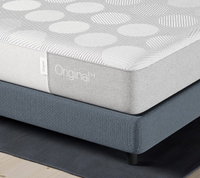
Original Hybrid Mattress, from Casper
Get multi-zoned support to help align your spine with this hybrid mattress from Casper. It has comforting foam to help to relieve your body from pressure as well as springs to prevent sinking. A truly luxurious night's sleep.
Does the direction you sleep matter?
That said, there could be some benefit to changing the direction you sleep, although it doesn't necessarily correlate with the Earth's magnetic field. Instead, it has more to do with your personal comfort.
'To the extent the direction you face during sleep matters, it would be in regard to how calm or safe the position of your bed makes you feel,' says Jeff. 'Positioning your bed away from doors and windows, but still within sight of these access points, can potentially promote a sense of security that can help you relax — a necessary ingredient in falling asleep.' Bedroom feng shui also suggests that your bed should be in a commanding position in the room that isn't directly in line with your door.
There's also the factor of your bedroom's natural light. As Jeff notes, because getting natural morning light is so important for a good night’s sleep and improving your circadian rhythm, facing your bed towards a window to help you receive more morning light, such as an easterly window, will also be beneficial.
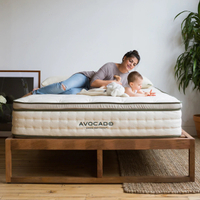
Avocado Green natural mattress
Sleep easy knowing your mattress is sustainable with this organic latex, wool and cotton option from Avocado green. The medium-firm mattress has no polyester, polyurethane foams, or toxic fire retardants to harm you either.
What other changes can you make to improve sleep quality?
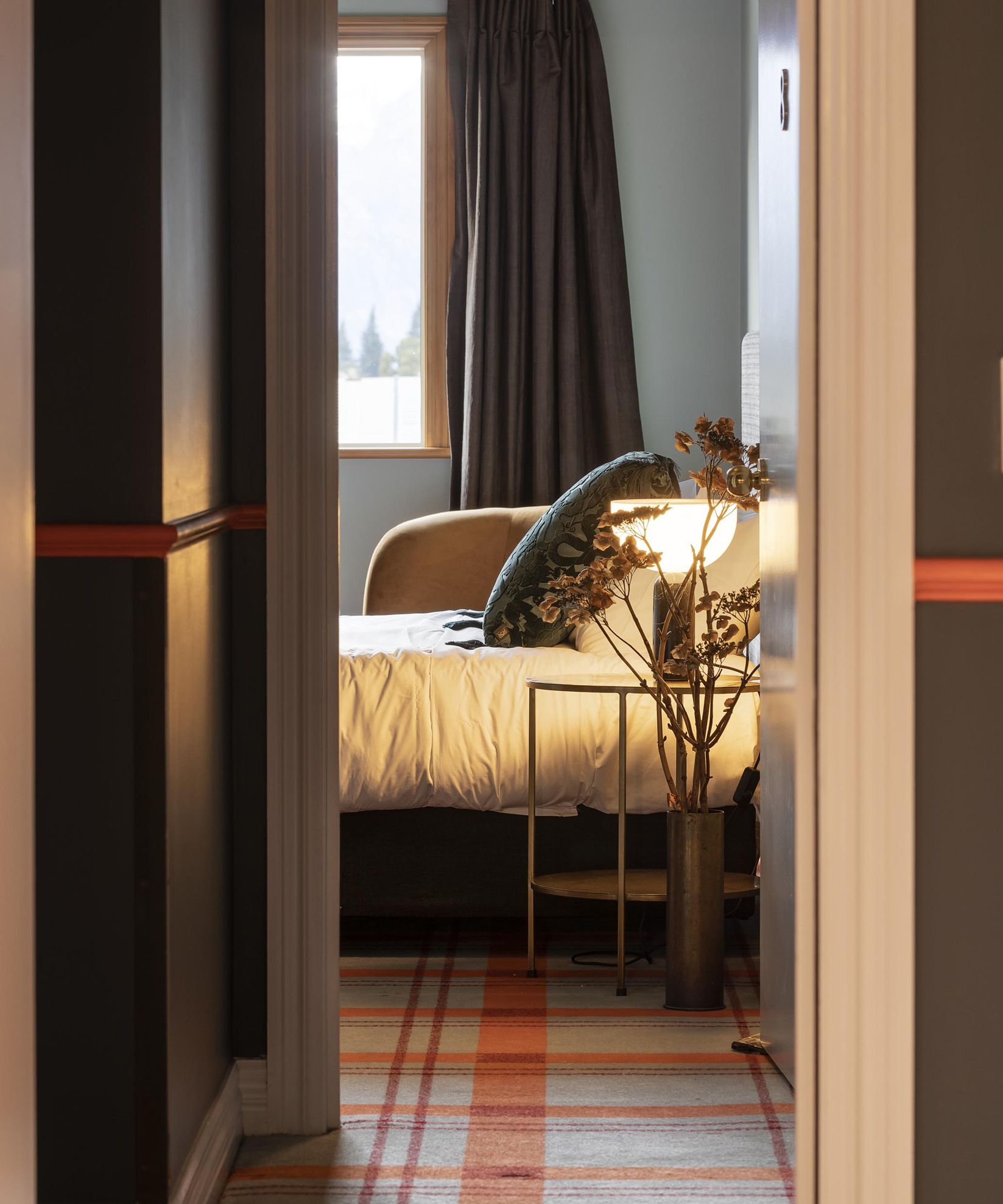
If you've had a bad night's sleep, the bottom line is that the direction you sleep in probably isn't the real aggravating factor. Before you commit to changing your bedroom layout to test it out, there are a whole host of other small changes you can make in the bedroom that are proven to improve sleep instead.
'Making your bedroom into a “sleep sanctuary” is key to helping you rest and recharge,' says Jeff. 'Consider decluttering your space, choosing comfortable bedding and sleepwear, and making sure your bedroom smells inviting.'
It's also a good idea to keep your bedroom slightly cooler than the rest of your home to help you sleep at night. Susan Miller, lead researcher and certified sleep expert at Sleep Mattress HQ suggests setting the temperature between 60-67°F. Dimming the lights an hour or so before you sleep can also help prompt your body's natural sleep cycle. 'Ensure your bedroom is comfortable and free from distractions like bright lights, electronics, and disruptions from outside noise,' says Tom. 'Taking steps such as these can help improve overall sleep quality regardless of the way you face in bed.'
If your bedding is due a refresh, it's worth researching how to choose the right mattress for your sleeping positon. 'When putting together the ideal sleep environment, it’s not just about optimizing temperature, humidity, noise, and light,' says Michael Breus, sleep expert at The Sleep Doctor. 'Having the right mattress, pillows, and bedding can also help you feel relaxed and ready for a good night’s rest.' Not only do the offer the comfort and support we need during sleep, but they play an important role in regulating body temperature too. 'If you sleep hot, look for a mattress that promotes good airflow around the body and doesn’t retain too much body heat,' suggests Michael.
Be The First To Know
The Livingetc newsletter is your shortcut to the now and the next in home design. Subscribe today to receive a stunning free 200-page book of the best homes from around the world.

Lilith Hudson is the News Editor at Livingetc, and an expert at decoding trends and reporting on them as they happen. Writing news, features, and explainers for our digital platform, she's the go-to person for all the latest micro-trends, interior hacks, and color inspiration you need in your home. Lilith discovered a love for lifestyle journalism during her BA in English and Philosophy at the University of Nottingham where she spent more time writing for her student magazine than she did studying. After graduating, she decided to take things a step further and now holds an MA in Magazine Journalism from City, University of London, with previous experience at the Saturday Times Magazine, Evening Standard, DJ Mag, and The Simple Things Magazine. At weekends you'll find her renovating a tiny one-up, one-down annex next to her Dad's holiday cottage in the Derbyshire dales where she applies all the latest design ideas she's picked up through the week.
-
 How to Thaw a Frozen Pipe — Learn Everything You Need to Know in 5 Minutes With This Guide
How to Thaw a Frozen Pipe — Learn Everything You Need to Know in 5 Minutes With This GuideWinter storm caught you off guard? We asked an expert — just how do you thaw a frozen pipe?
By Hugh Metcalf Published
-
 The 12 Very Best Silk Bedding Pieces — As Our Style Editor Says: 'It's What Dreams Are Made Of!'
The 12 Very Best Silk Bedding Pieces — As Our Style Editor Says: 'It's What Dreams Are Made Of!'Slumber in lustrous luxury with the very best silk bedding sheets, duvets, pillowcases, and more — your sleep score will thank us later
By Julia Demer Published
